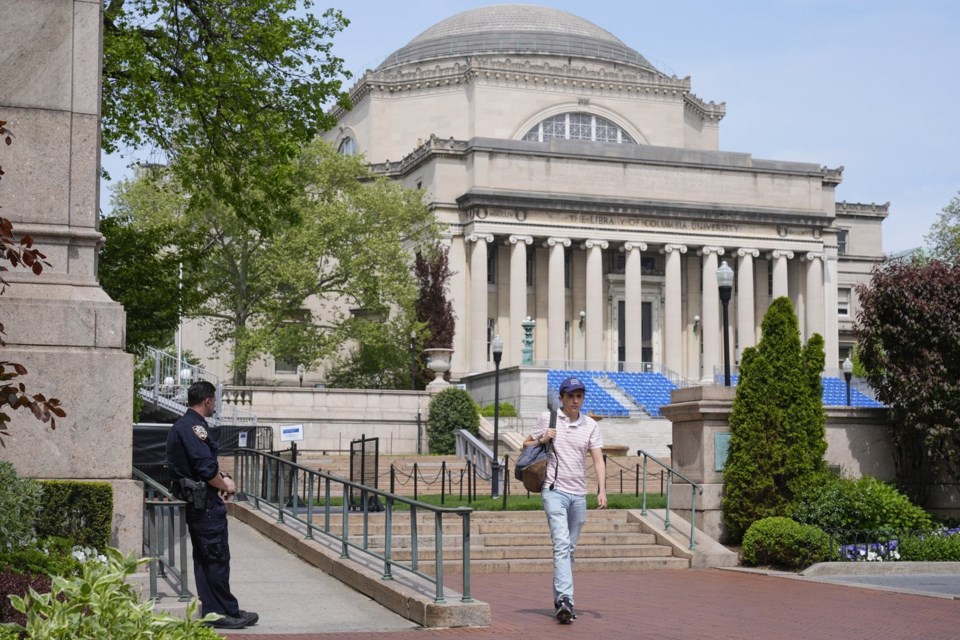NEW YORK (AP) — Columbia University said Tuesday that it will be laying off nearly 180 staffers in response to President Donald Trump's decision to cancel $400 million in funding over the Manhattan college's handling of student protests against the war in Gaza.
Those receiving non-renewal or termination notices Tuesday represent about 20% of the employees funded in some manner by the terminated federal grants, the university said in a statement Tuesday.
“We have had to make deliberate, considered decisions about the allocation of our financial resources,” the university said. “Those decisions also impact our greatest resource, our people. We understand this news will be hard.”
University spokesperson Jessica Murphy declined to say whether more layoffs were expected, but said Columbia is taking a range of steps to create financial flexibility, including maintaining current salary levels and offering voluntary retirement incentives.
Research will also be scaled back, with some departments winding down studies and others maintaining some level of research while pursuing alternate funding.
The work impacted ranges from a project to develop an antiviral nasal spray for infectious diseases to various scientific studies on maternal mortality and morbidity, treatments for chronic illnesses such as long COVID, caring for newborns with opioid withdrawal syndrome and screenings for colorectal cancer, according to the university.
The layoffs, while expected, were “dispiriting" for faculty, said Marcel Agueros, secretary of Columbia’s chapter of the American Association of University Professors, which has filed a federal lawsuit against the Trump administration arguing the cuts are unlawful.
University officials say they’re working with the Trump administration in the hopes of getting the funding restored. But Agueros, an astronomy professor, said it will take years to undo the damage already inflicted.
“When there’s an interruption in funding, people have to leave, new people can’t be hired, some initiatives have to be put on hold, others need to be stopped, so research stops moving forward,” he said.
In March, the Trump administration pulled the funding over what it described as the Ivy League school’s failure to squelch antisemitism on campus during the Israel-Hamas war that began in October 2023.
Within weeks, Columbia capitulated to a series of demands laid out by the Republican administration as a starting point for restoring the funding.
Among the requirements was overhauling the university's student disciplinary process, banning campus protesters from wearing masks, barring demonstrations from academic buildings, adopting a new definition of antisemitism and putting the Middle Eastern studies program under the supervision of a vice provost who would have a say over curriculum and hiring.
After Columbia announced the changes, U.S. Education Secretary Linda McMahon said the university was “ on the right track," but declined to say when or if Columbia's funding would be restored. Spokespersons for the federal education department didn't immediately respond to an email seeking comment Tuesday.
Columbia was at the forefront of U.S. campus protests over the war last spring. Pro-Palestinian demonstrators set up an encampment and seized a campus building in April, leading to dozens of arrests and inspiring a wave of similar protests nationally.
Trump, when he retook the White House in January, moved swiftly to cut federal money to colleges and universities he viewed as too tolerant of antisemitism.
Philip Marcelo, The Associated Press



